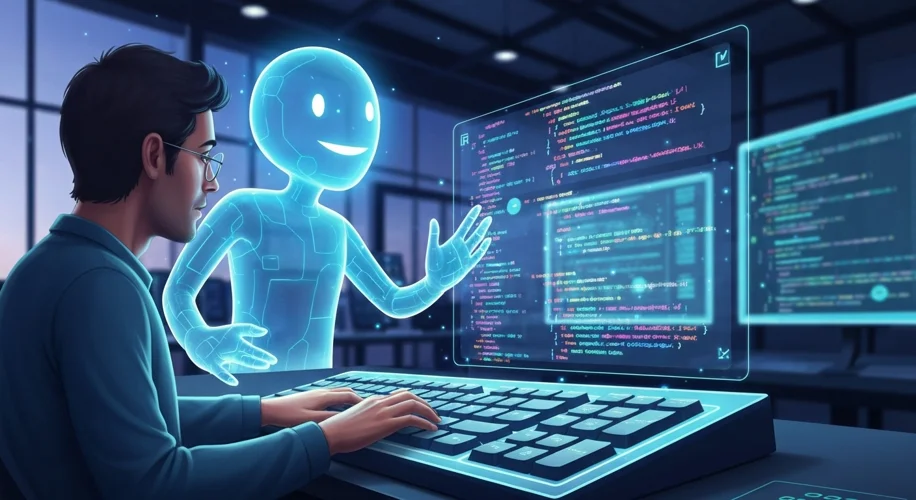Hey everyone, Mateo here!
As someone neck-deep in AI research for my PhD and always tinkering with code, I’ve seen firsthand how fast things are moving. You’ve probably noticed it too – AI is popping up everywhere in the coding world, and for good reason. It’s not just a buzzword; it’s genuinely changing how we build software.
So, why this sudden race to adopt AI in coding? Let’s break it down.
1. Supercharged Productivity:
Imagine having a coding assistant that can suggest the next line of code, find bugs before you even realize they’re there, or even write entire functions based on a simple description. That’s what tools like GitHub Copilot and others are starting to do. As a developer, this means spending less time on repetitive tasks and more time on the creative, problem-solving parts of building something cool. I’ve used these tools on personal projects, and honestly, they can drastically speed up development. It’s like having a pair programmer who never sleeps and knows a ton of languages.
2. Bridging the Skill Gap:
Learning to code can be a steep climb. AI tools can act as incredible learning aids. They can explain complex code snippets, provide examples, and help newcomers understand concepts faster. This means more people can get into coding and contribute to the tech landscape, which is awesome for innovation. Plus, for experienced developers, it means tackling more complex problems without getting bogged down in syntax errors.
3. Smarter Debugging and Testing:
Debugging is often the most frustrating part of coding. AI is getting really good at identifying potential issues in code, sometimes even before the code is run. This proactive approach saves a massive amount of time and headache. Think about automated testing – AI can help generate more comprehensive test cases, ensuring software is more robust and reliable. I’ve seen AI-powered tools catch subtle errors that traditional methods might miss.
4. Enhancing Creativity and Exploration:
This might sound counterintuitive, but AI isn’t just about automation; it’s also about enabling creativity. By handling the more mundane aspects of coding, AI frees up developers to experiment with new ideas and architectural patterns. It allows us to explore more ambitious projects that might have been too time-consuming before. It’s like having a powerful sandbox where you can try out wild ideas without worrying as much about the tedious implementation details.
What’s Next?
We’re still in the early days, but the trajectory is clear. AI is becoming an indispensable partner in the software development lifecycle. It’s not about replacing developers, but rather augmenting our abilities, making us faster, smarter, and more creative. The future of coding is likely a collaboration between human ingenuity and artificial intelligence.
It’s a really exciting time to be involved in this field. What are your thoughts or experiences with AI coding tools? Let me know in the comments!

